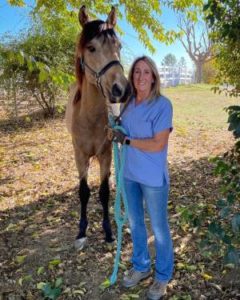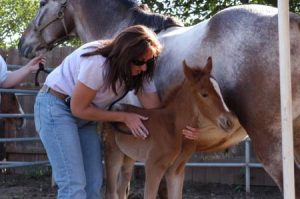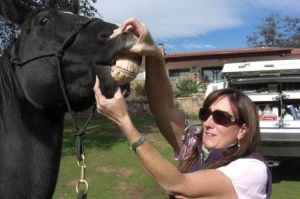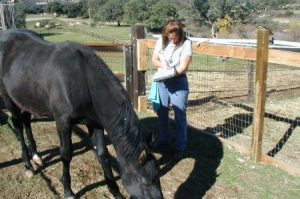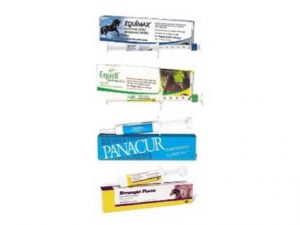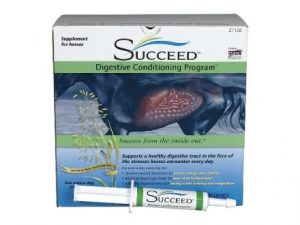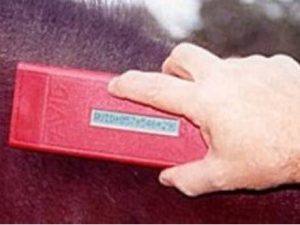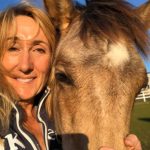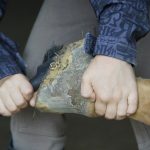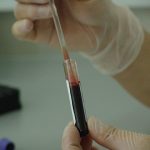
HORSE CRIBBING AND DENTIST …
Pet owners sometimes forget that animals need dental maintenance just like we do. It is important to stay on top of routine dentistry in order to help prevent more serious problems in the future. Aside from routine dental conditions that occur in horses, owners might encounter a behavior that is referred to as cribbing or crib biting, which can have a negative effect on the incisor teeth.
“With cribbing (or crib biting), a fixed object is grabbed with the incisor teeth and air is drawn in repetitively through the mouth by the horse, causing a characteristic grunting noise,” said Dr. Cleet Griffin, clinical assistant professor at Texas A&M College of Veterinary Medicine & Biomedical Sciences. “This behavior causes an abnormal appearance of the incisor teeth due to excessive wear.
“Usually, this behavior is associated with boredom or confinement of horses. A remedy for every cribber does not exist. Prevention can include the use of mechanical devices to prevent grasping objects, such as a muzzle. The muzzle is worn continually by the horse and limits cribbing behavior, but not eating or drinking. In my experience, these seem very humane and work well at preventing the behavior. A ‘cribbing collar’ fits very snug around the throatlatch area of the neck of the horse and discourages the horse from engulfing air. These have been utilized commonly to help prevent cribbing behavior. Other approaches that have been practiced include surgery, acupuncture, nutritional alterations, and environmental alterations to deter the behavior.”
If a horse is cribbing and owners are not aware of it, they may notice that wood has been chewed away from the feed manger or surrounding fencing. The behavior can also be very destructive to plastic water buckets and feed buckets. An annual oral exam can detect abnormal wear of the incisor teeth that results from cribbing.
“The annual oral exam also helps to detect sharp dental points that may cause discomfort during eating or riding,” said Griffin. “The examination detects abnormalities of eruption, damaged crowns, and overgrown teeth as well.
“In Texas, it is unlawful for anyone other than a licensed veterinarian to perform dental procedures on horses. For the annual visit, horses require a primary care veterinarian who is accustomed to performing routine dental procedures in horses. There are some veterinarians who limit their practice to dentistry and have undergone additional training to perform specialized procedures, who may be needed in certain situations.”
Sometimes dental emergencies need to be addressed.
“The most common emergencies that involve teeth in my experience usually occur in juvenile-age horses, and it is not uncommon for these horses to sustain traumatic fracture of the bone involving the upper or lower incisor teeth,” said Griffin.
This can damage erupted teeth or the developing permanent teeth under the gum. In many instances, surgical wiring can be used to fix the bone and teeth back into place for healing.
“Also, I have seen horses in which an acute fracture to the crown of an incisor tooth or canine tooth has occurred, causing exposed, bleeding dental pulp,” said Griffin.
With fractured teeth, the veterinarian can undertake emergency treatments in many instances to reduce pain and prevent contamination of the exposed dental tissue in an effort to allow healing and eventual restoration of crown.
Besides obvious signs such as bleeding, like the described case above, there are other things to watch for that might indicate oral discomfort in a horse. If, while riding, your horse displays abnormal irritated behavior such as head tossing, gaping the mouth, or slinging the head (especially after a bit is put into place), this could be a sign that the horse needs dental work.
“If the horse begins to exhibit unusual behavior while eating or chewing, such as excessive slobbering, tilting the head to the side, or dropping large chunks of poorly chewed feed material, that is a sign that some dental work needs to be done,” said Griffin.
Most dental issues can be resolved or prevented with a yearly exam. If horse owners become complacent and neglect their horses’ dental maintenance, it is possible that more severe problems could lead to esophageal choke or impaction colic.

